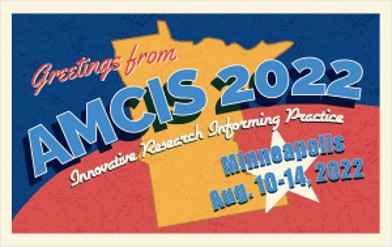SIG SEC - Information Security and Privacy
Loading...
Paper Type
ERF
Paper Number
1280
Description
Augmented and Virtual Reality (AR/VR) technology has advanced significantly in recent years, with recent applications in military, medicine, and education. Currently, most security artifacts utilized in AR/VR contexts are drawn from existing computing. These artifacts, however, were developed during the early ages of computing, to satisfy a completely different set of assumptions. In the context of AR/VR these assumptions have changed significantly. This research seeks to develop a general model of knowledge-based authentication (KBA). The model will be evaluated in the AR/VR context. This research will draw attention to the importance of considering security artifacts in the context for which they are being used, not for which they were originally developed. This work is expected to guide development of knowledge-based authentication in AR/VR, as well as provide guidance as future computing technologies are developed.
Recommended Citation
kreider, christopher and El-Gayar, Omar, "Reconceptualizing Knowledge Based Authentication for Augmented and Virtual Reality Contexts" (2022). AMCIS 2022 Proceedings. 22.
https://aisel.aisnet.org/amcis2022/sig_sec/sig_sec/22
Reconceptualizing Knowledge Based Authentication for Augmented and Virtual Reality Contexts
Augmented and Virtual Reality (AR/VR) technology has advanced significantly in recent years, with recent applications in military, medicine, and education. Currently, most security artifacts utilized in AR/VR contexts are drawn from existing computing. These artifacts, however, were developed during the early ages of computing, to satisfy a completely different set of assumptions. In the context of AR/VR these assumptions have changed significantly. This research seeks to develop a general model of knowledge-based authentication (KBA). The model will be evaluated in the AR/VR context. This research will draw attention to the importance of considering security artifacts in the context for which they are being used, not for which they were originally developed. This work is expected to guide development of knowledge-based authentication in AR/VR, as well as provide guidance as future computing technologies are developed.
When commenting on articles, please be friendly, welcoming, respectful and abide by the AIS eLibrary Discussion Thread Code of Conduct posted here.



Comments
SIG SEC